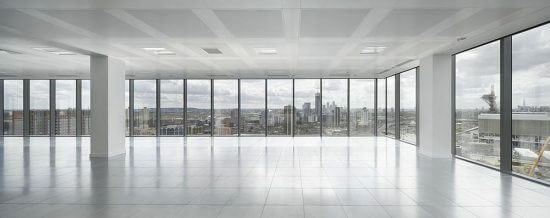After lockdown, will you go back to the office, or start working remotely?

Last week I wrote about working from three time frames through the current environment:
- What Comes Now
- What Comes Next
- What Comes in the Future
For many of us, we have been in lockdown anything from 3-6 weeks, with anything from 2-6+ weeks to go before limited changes are made by various governments around the world.
My question today is: “will you go back to the office?“
I’ve got two thoughts on why this is not an automatic “yes”, and a “flip the paradigm” idea to support you in considering this.
Remote vs “Working from Home”
My first thought is to “flip the paradigm”.
We’ve heard so many people say they are “working from home”, yet this contains within it an unconscious thought that their reality is that work is something you normally don’t do at home, instead you go to an office or other place of work.
Now, I’ve been a “remote worker” since 1993 and wrote a long piece on this about a year ago called: “WorkAnywhere”. Going beyond “Remote”, but for many, the whole idea of “Working from Home” is very new so they feel really challenged. In that long post I referenced the book “Remote” by Jason and David, founders of Basecamp, I’m a big fan of their mindset and ideas in leading a remote company and recommend their books to anyone considering a shift to be more remote.
So, my thought is to ask yourself:
What if we thought of ourselves as a remote company?
In a remote company, your starting point is that everyone works remotely as the default starting point.
You only go into the office when it is more effective to do so, such as when “facetime” for a meeting is truly key.
Effectiveness vs Efficiency
“Efficiency is doing things right; effectiveness is doing the right things.”
Peter Drucker
Now, I pause to share that quote. One can commute into the city to “the office” as efficiently as you like, but if it does not make you any more effective at work to leave your home and remote working, then you have just efficiently done the wrong thing and wasted, time, effort and resources!
So, the first of two reasons why many may not go back to the office every working day once their government allows it is that so many people have found out a) how inefficient it really was to commute daily, and b) how effective in many ways it can be to work remotely, including use of remote tools such as video, chat etc (when used effectively, I note!)
Unspoken – why else we won’t want to go back to the office
So, when permission is granted by government to go back to the office, many businesses may find their people keen to keep working remotely. They may even find their strength of feeling around this almost irrationally strong. Why might that be?
Even if your place of work has a culture that truly fosters open and honest communication at all levels, people may not want to voice that they have a personal fear of once again travelling on mass transit among commuter crowds at this time. This one I share as an awareness.
Overall, in the short term,”what comes next” people may want to keep working remotely more than you might expect.
Whats come in the Future?
Looking further ahead, particularly if you are in a major city where the vast majority of people commute distances by mass transit (London, New York, almost every major Asian city etc), might you flip to a work plan where people only commute in 1-3 days per week? Might that mean (say) you currently have 3 floors of office space and can move down to 2?
Hmm, I don’t think I would want to be invested in the commercial office space business for some years. Oh, and as for co-working, literally one year ago I forecast the implosion of WeWork as a viable business. It was already crashing down before the pandemic, but I feel it will only accelerate now.
Now, if the average business reduces commuting to centrally located offices by 20%, imagine the reduction in commuter traffic and so pollution and infrastructure burden. Imagine also the increase in effectiveness of their employees and their work:life balance enhancement.
Now imagine if that decrease in “office presence” increases to 40%?
What a huge shift that would be and what a positive impact on our planet that would have?
Next consider impact and opportunities arising from that?
Impact from Less business travel, fewer conferences, lower office rental space used.
Opportunities? So many, from parents with school age children being able to pick them up after school and sitting down for dinner together, more and more local and independent businesses in commuter belt towns and villages serving people who are now in their home town more like four days per week rather than the two day weekend.
Ah, the entrepreneur in me see so many changes and opportunities!
Enough crystal ball gazing for now!
